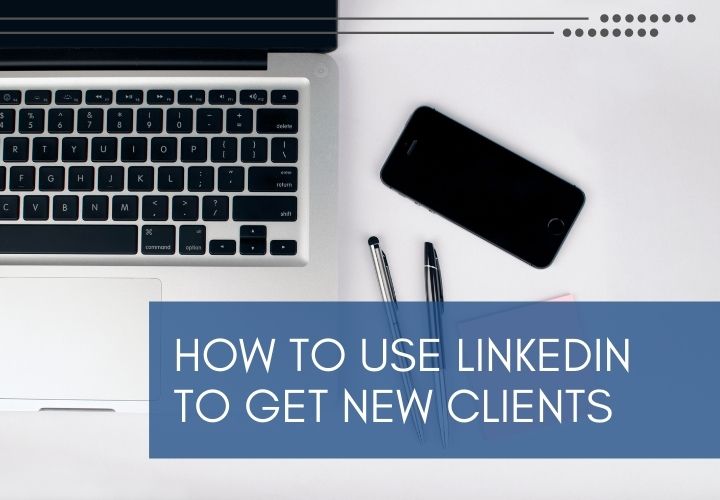
Episode 215: How I Raise Our Children While Building My Freelance Business
08/19/2019
Episode 216: A Day in the Life of a Freelance Translator
09/02/2019Marketing yourself is never simple, as many freelancers have found to their dismay. It’s totally different from marketing a product or service you’re only tangentially linked to — that’s relatively easy, particularly when your only interest is financial. When it’s your services you’re trying to promote, you can get self-conscious and start to second-guess yourself.
Even so, it isn’t something you can look past. We live in a time of such competition (thanks to the internet) that you’re just one of countless options. If you want to get any work, you need to stand out, which means finding effective ways to market yourself.
So how do you manage it? Well, there’s a lot of value in drawing inspiration from the world of entrepreneurs. Like you, they struck out on their own, but then took their marketing to the next level to establish their own businesses. To help you pick up more business, let’s run through 6 marketing lessons that freelancers can learn from entrepreneurs:
You Need a Personal Brand
Many people don’t like attention. All they want is to get on with their work and be left alone. Unfortunately, unless you’re in a very fortunate position, that isn’t an option for a freelancer. Because your work isn’t guaranteed, you must always be proactively seeking it out — but you also need your reputation to precede you.
After all, you can’t be everywhere, and with your regular workload taking up time, you can’t spend hours every day reaching out to people. That’s where your personal brand comes in. Entrepreneurs commit huge amounts of time and money to building their brands, establishing themselves as noted experts and bringing in website traffic.
They do this because passive interest is invaluable. Do an excellent job of building a brand (complete with professional logo, mission statement, testimonials, and style), and you’ll eventually find that prospective customers seek you out.
Charisma is Important
Have you ever noticed how cheery entrepreneurs appear to be? They’re always optimistic, welcoming, and exuding passion for whatever they’re working on. This isn’t accidental, nor is it innate to everyone in that type of position. It’s cultivated. It may be rooted in genuine optimism, but it has the volume turned all the way up for clarity.
What they know is that personal charisma can win or lose a client. When you work with someone positive, you feel more positive. It’s simple mirroring. So when you market your freelance services, don’t simply list your qualifications — do your best to radiate likability, as well as confidence in the quality of the service your offering.
Emotion Drives Action
Entrepreneurs are used to convincing people. They’re in sales mode all the time, which is why they’re so good at reducing their pitches to emotional pulls. Consider that interviews with entrepreneurs invariably recap their narratives — how they started, how they struggled, and how they eventually succeeded. The takeaway is clear: “You too can achieve this, and I can show you how to do it.”
It’s that emotional drive (“you can do it”) that works to get people on board, instead of anything specific about their experiences or achievements. As a freelancer, you need to be ready to provide an emotive pitch if needed. If someone doubts your usefulness, for instance, it may be that the only thing capable of changing their mind is an appeal to emotion.
Tech Can Help with Consistency
Freelancers go from project to project and client to client, and that workload can tempt someone to relax somewhat and let their standards slip from time to time. This is dangerous. You need to aspire to 100% reliability in all aspects of your business, even if you don’t achieve it.
Why? Because if you’re inconsistent in any professional regard, it’ll lead people to doubt the quality of your work — and since the average client won’t be able to analyze it themselves, they could easily come to imagine that you’ve done a poor job. But technology can help. Solo entrepreneurs use software tools to do more with their time, and you can do exactly the same.
There are free tools out there to help you with anything from arranging a business meeting with a prospective client to creating a business invoice that will look solid and get you paid on time. The more effort you can offload, the more you can focus on your actual work, and the less you’ll need to worry about having your skill or dedication questioned.
Each Audience is Different
Modern digital entrepreneurs know how to go cross-channel with their marketing, reaching out to as many types of people as possible to improve their odds. And when they reach different people, they promote themselves differently — one prospective client might be looking for technical advice, while another might want general support. Great entrepreneurs can be whatever their clients need them to be, adapting on the fly.
Even if you stick to a particular niche for your freelancing, you’re still going to encounter different types of potential client, and taking a one-size-fits-all approach will harm your chances. Before you speak to a particular business or individual, do some research to learn about how they communicate, then seek to match their style (without entirely compromising your own). As long as you come across as genuine, they’ll appreciate the effort.
Iteration is the Key
When you hear about a thriving entrepreneur, do you assume they’ve always had it easy? In most cases, that’s inaccurate. They’ve been through plenty of tough times, but they’ve persevered, recovering from failure after failure before hitting upon something truly workable. And they apply that same spirit to marketing: they try new things, see what works, and try again with altered strategies. Never forget that marketing must be a continual process.
In some ways, this is easier for a freelancer, because you’re not as widely known. You can change almost anything about your operation and marketing efforts at any time. Focus on Facebook, get nowhere, switch to Pinstagram — what matters is that you keep testing and making improvements as a result.
Working as a freelancer can be great if you know how to market yourself. Learn from these 6 entrepreneurial takeaways, and you’ll be in a good position to push ahead.
Bio:

Rodney Laws is an ecommerce platform specialist and online business consultant. He’s worked in the ecommerce industry for nearly two decades, helping brands big and small to achieve their business goals. You can get his advice for free by visiting EcommercePlatforms.io and reading his detailed reviews. For more tips and advice, reach out to Rodney on Twitter @EcomPlatformsior.



